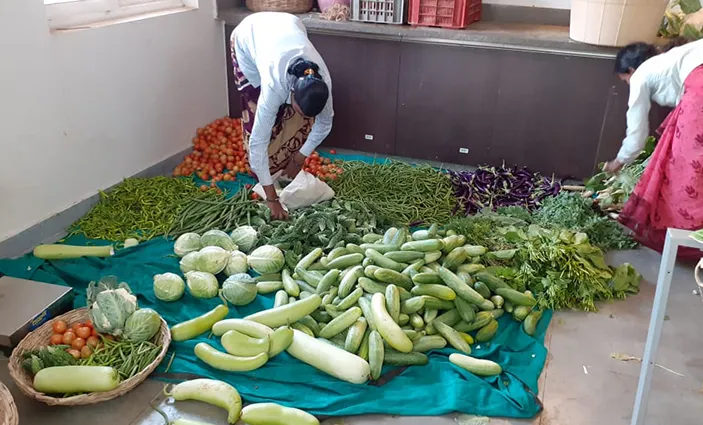 Contact us
Contact usIntent
Community
Studio Organo Concepts
About Us
Subsidaries
Studio Organo
TS RERA No.P02400003403.
TS RERA No.P02400003403.

As the word suggests, slow food is in every way opposite to fast food. The slow food movement started in the 1980s in Rome, when a group of protestors gathered outside the newly opened franchise of McDonald’s fast-food restaurant and started chanting the slogans “We don’t want fast food, we want slow food.” Soon, the slow food manifesto was signed to escape from the “tediousness” of fast food and give time to enjoying the richness and aromas of local cuisines.
It is already a well-established fact that fast food has many negative influences on our health, obesity being the most rampant one. However, the slow food movement enlightens the problems associated with fast food that goes beyond physical health.
Fast food, as the name suggests, means the food we can have on the go which isn’t enriching to eat physically or emotionally. It cannot be compared to having a full, happy meal while spending quality time with your family.
Additionally, fast food has environmental impacts by leaving a carbon footprint and the packaging and preservatives used to leave behind a hazardous trail on health and the environment.
BENEFITS OF SLOW FOOD
Slow food is meant to counter all the downsides of consuming fast food by focusing on three important standards of food – healthy, delicious, and eco-friendly.
A healthy choice starts with freshly cooked meals at home. When you cook at home, you are fully aware of the ingredients that go into your food and their nutritional benefits. This healthy choice, in turn, reduces your money spent on healthcare.
When you sit down for a freshly cooked full course meal with your friends, family and peers, it gives you an opportunity to bond, connect, and spend quality time with your near and dear.
When you opt for slow food, it prompts you to source ingredients from the local farmer’s market and gives you an opportunity to understand how they work to get food from the farms to your plate. It generates a better connection with your food, contrary to shopping in a big supermarket.
By shopping at the local farmers market, you are contributing to the upliftment of farmers and local vendors helping them improve their living.
By cooking your own food at home, you are mitigating the environmental impact caused by packaging, processing and transportation of fast food from factories to your plate. You are avoiding the accumulation of carbon footprint.
Eating a home-cooked meal from scratch is much cheaper than dining out or getting a takeaway from a fast-food restaurant as it does not include the costs for packaging and transportation.
Any fast food restaurant you visit all over the world offers you the same menu. However, by choosing slow food, you get to experience all local cuisines since the core purpose of slow food is to preserve our traditional recipes and ingredients.
Slow food also enables you to enjoy the time spent in preparation as much as devouring the hot meal. It calls for “slow and prolonged enjoyment” of food. Ordering pizza cannot beat the feeling of sitting down after spending time on preparing your favourite meal with your favourite drink, and that first delicious bite of your food.
Living in a Rurban community helps you to access local ingredients that go into cooking Slow Food sustainably and easily. The community as a whole comes together to adopt the slow food movement, which creates a relationship between all the members.
